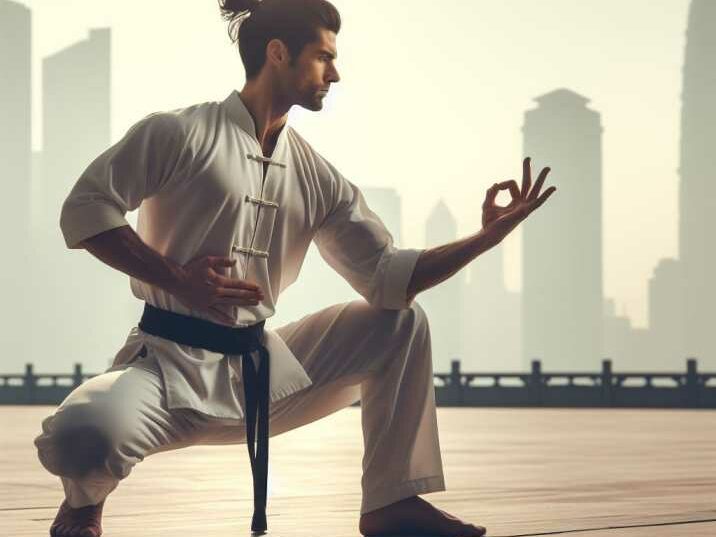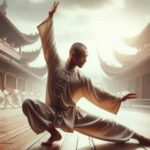Introduction:
Table of Contents
Kung Fu, a traditional Chinese martial art, is renowned for its graceful movements, powerful techniques, and philosophical depth. Many enthusiasts are drawn to its discipline and potential for physical and mental development. However, a common question arises: Can Kung Fu be practiced effectively without the guidance of a teacher or instructor? In this article, we delve into this intriguing topic to provide insights, tips, and considerations for those who wish to embark on the journey of Kung Fu practice without a teacher or instructor.

Understanding Kung Fu:
Kung Fu, also known as Wushu, encompasses a wide range of Chinese martial arts styles that have been developed and refined over centuries. It emphasizes techniques such as strikes, kicks, blocks, and grappling, along with principles of balance, coordination, and fluidity of movement. Kung Fu is not just a physical practice but also a holistic discipline that promotes mental focus, self-discipline, and spiritual growth.
Benefits of Practicing with a Teacher:
Having a qualified teacher or instructor offers numerous advantages for learning Kung Fu. They provide personalized guidance, correct techniques, and ensure safety during training. Additionally, a teacher can offer valuable insights into the philosophy and principles underlying Kung Fu, enhancing the practitioner’s understanding and appreciation of the art.
Challenges of Practicing Solo:
Practicing Kung Fu without a teacher presents its own set of challenges. Self-discipline is crucial as there is no external accountability to ensure consistent practice. Correct technique is another concern, as improper execution can lead to injury or ineffective training. Additionally, without a teacher to provide feedback and corrections, progress may be slower, and bad habits could develop.
Tips for Kung Fu Practice without a Teacher or Instructor:
While Kung Fu practice without a teacher or instructor requires dedication and self-motivation, it is certainly possible with the right approach. Here are some tips to enhance your solo practice:
- Start Slowly: Begin with basic movements and gradually progress to more complex techniques.
- Use Resources: Utilize books, online tutorials, and instructional videos to supplement your practice and gain insights into proper technique.
- Visualize: Mental rehearsal can be a powerful tool for improving technique and enhancing focus.
- Set Goals: Establish clear goals for your practice to stay motivated and track your progress.
- Stay Safe: Pay attention to your body and avoid pushing yourself beyond your limits to prevent injuries.
Conclusion:
In conclusion, while practicing Kung Fu without a teacher presents its challenges, it is indeed possible with dedication, self-discipline, and the right resources. Whether you choose to train solo or with an instructor, the essence of Kung Fu lies in continuous learning, self-improvement, and a deep respect for the art. By embracing the journey of Kung Fu practice, you embark on a path of physical, mental, and spiritual growth that transcends the confines of formal instruction.
FAQs (Frequently Asked Questions):
- Can anyone practice Kung Fu solo?
- Yes, anyone can practice Kung Fu solo, but it requires dedication and self-discipline.
- Is it possible to learn Kung Fu from online tutorials?
- While online tutorials can be helpful supplements, hands-on instruction from a qualified teacher is highly recommended for learning correct technique.
- What are the risks of practicing Kung Fu solo?
- Risks include the potential for improper technique leading to injury and the development of bad habits without feedback from a teacher.
- How can I stay motivated while practicing Kung Fu solo?
- Setting clear goals, visualizing progress, and finding a supportive community can help maintain motivation during solo practice.
- Can solo practice replace training with a teacher entirely?
- While solo practice can supplement training with a teacher, it is not a replacement for personalized instruction and feedback.


